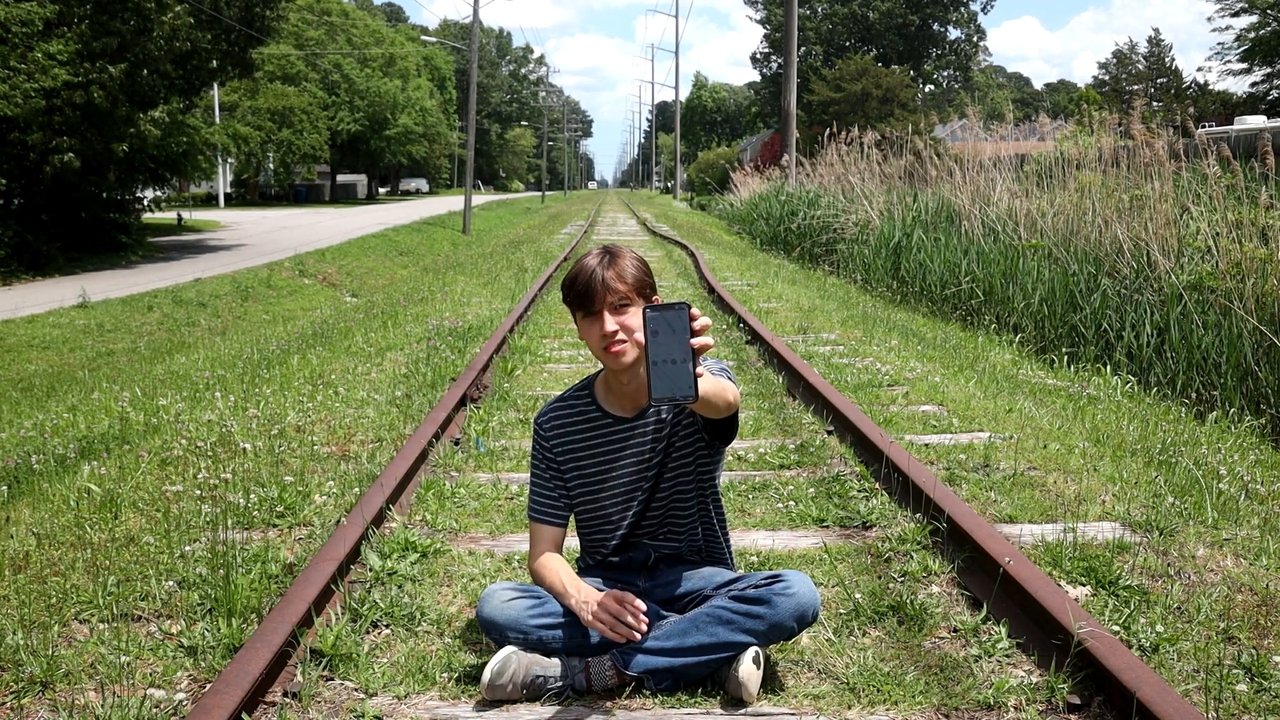
Melting Point (2022)
A collage of interviews analyzing the internet, political polarization, incel culture, the far-right, and the process by which young people can evolve towards extremism.

A collage of interviews analyzing the internet, political polarization, incel culture, the far-right, and the process by which young people can evolve towards extremism.
 Eli James MargolisHimself
Eli James MargolisHimselfDonald Trump has emerged as the clear front runner for the Republican Presidential Nomination. Matt Frei investigates whether "The Donald" could make it all the way to the White House.
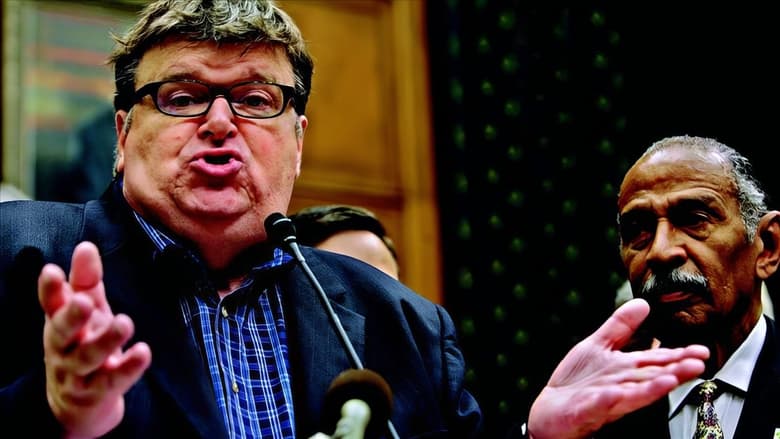
Michael Wilson, like the subject of his film, is trying to get an interview with a multi-millionaire; however, in this case, that millionaire is Michael Moore himself.
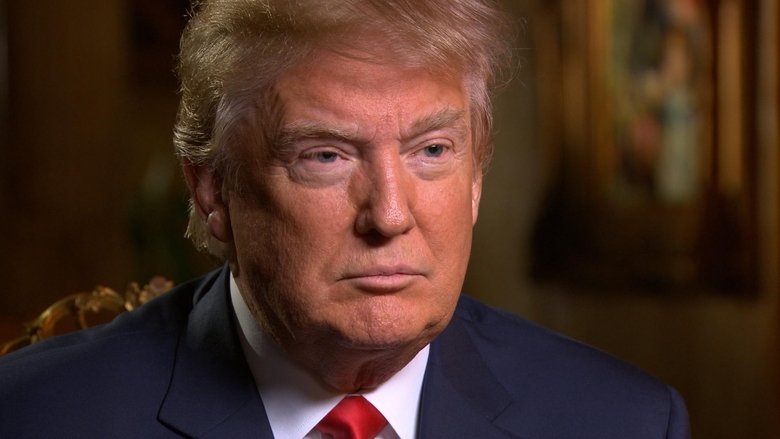
As every day of Donald Trump's presidential campaign seemingly generates new headlines, this two-hour special examines the increasingly polarizing candidate's past. Included is rarely seen footage from Trump's interviews with Phil Donahue and his comments about politics from the floor of the 1988 Republican convention. Additionally, celebrities, politicians, and people described as "close to The Donald" weigh in, including former US Senator Al D'Amato (R-N.Y.), former Atlantic City mayor Jim Whelen, boxer Mike Tyson, and notorious "Apprentice" contestant Omarosa.

"The palm trees on the reverse are a delusion; so is the pink sand". This line, taken from a poem by Margaret Atwood, lights the path traced in "Postcard". As the years go by, landscapes transform, take on new meanings, and hold onto joys that will never be regained. The sea and the beach, once stages of happy summers, romances, and encounters, will turn into concentration camps or centers of detention and torture. This occurs across different times and places. In this piece, I embark on a journey through some of my works that explore the relationship between testimony, spaces, and time, engaging in dialogue with the beautiful film directed by Alejandro Segovia in 1972.
Following a national crisis, the citizens of Iceland rallied together to collectively write the first ever crowdsourced constitution. A deeply touching account of an eclectic group of individuals reinventing democracy through the rewriting of the nation's constitution, proving that Iceland is not a broken country but instead an intricate web of concerns, ideas, and ultimately creative solutions.
Artist and life-long nerd Johannes Grenzfurthner is taking us on a personal road trip from the West Coast to the East Coast of the USA, to introduce us to places and people that shaped and inspired his art and politics. Traceroute wants to chase and question the ghosts of nerddom's past, present and future. An exhilarating tour de farce into the guts of trauma, obsession and cognitive capitalism. Features interviews with Matt Winston, Sandy Stone, Bruce Sterling, Jason Scott, Christina Agapakis, Trevor Paglen, Ryan Finnigan, Kit Stubbs, V. Vale, Sean Bonner, Allison Cameron, Josh Ellingson, Maggie Mayhem, Paolo Pedercini, Steve Tolin, Dan Wilcox, Jon Lebkowsky, Jan "Varka" Mulders, Adam Flynn, Abie Hadjitarkhani, Kelly Poots...
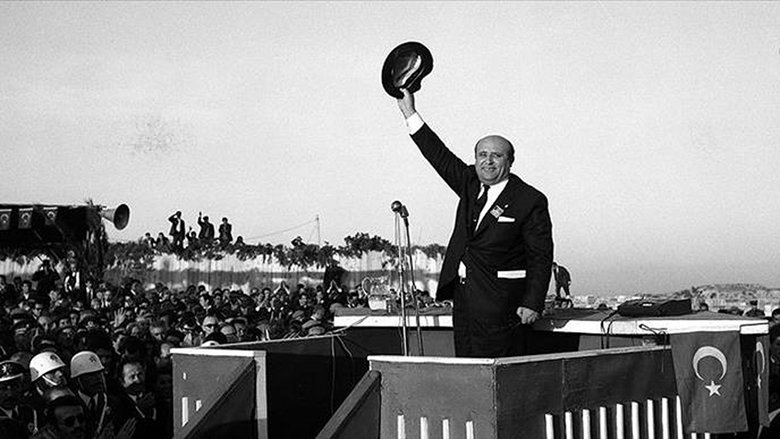
In 1965,a two-month-old leader,the commander of the Western Front, knocked down the big plane tree in a shake. One was 40, the other 80. In the last 5 years, it wasnt even possible to think of a government without İnönü in the country,but things were changing.Actually, Demirel was supposed to take the task, but the AP leader did not want it. It's good for the prime minister. He was inexperienced. A moderate name was found for this eight-month temporary period: Suat Hayri Ürgüplü, one of the former ministers of İnönü, and the new EP Senator. Demirel also sat on the chair of the deputy prime minister. For the first time in his life, he entered the General Assembly Hall of the Assembly during this period. Although he was not a deputy, he settled at the forefront of the Cabinet of Ministers, met with the government, and reconciled with the circles that were said to never give power to the EP. At the end of eight months, when the elections were at the door, the squares were waiting for him
As children, British actor Paul Blackthorne and Australian photographer Mister Basquali both fell in love with America. Later they each fulfilled their dream to live here, but after two wars, a near economic collapse, and uncertainty about the country's direction, these two expats began to have doubts -- was America still the great place they once dreamed of? They drive across America to find out, interviewing random people about issues that affect and confront us all. From the ghetto to the gun show, the courthouse to the cattle yard, they are touched by the wisdom and insight of the people they meet. This American Journey is a cinematic postcard from the people to the people, teaching us that hearts can be healed at the most unexpected times and in the most unexpected places.
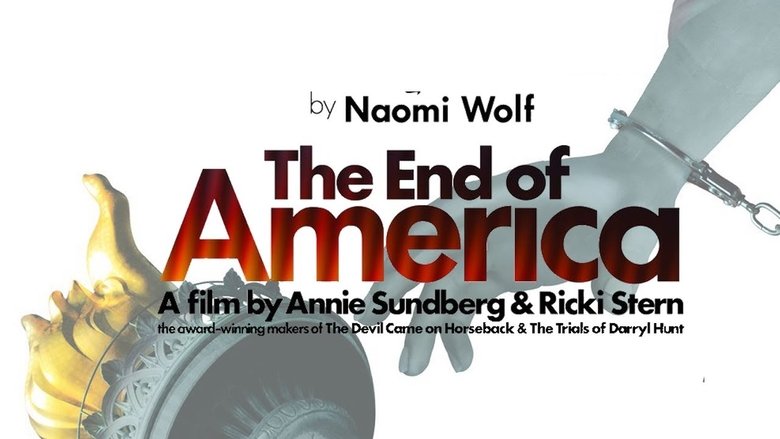
Based on her book of the same name, Naomi Wolf presents controversial evidence that America has begun a frightening descent into dictatorship and fascism. American democracy, as we know it, is under attack. By examining the chilling parallels between the current state of our nation and the ascent of dictators and fascism in other once-free societies, Wolf urges viewers to open their eyes to the horrors that lie ahead. From the increased use of paramilitary groups to the construction of secret prisons and the targeted suspension of the rule of law, the warning signs are all there for people to wake up and finally take notice.
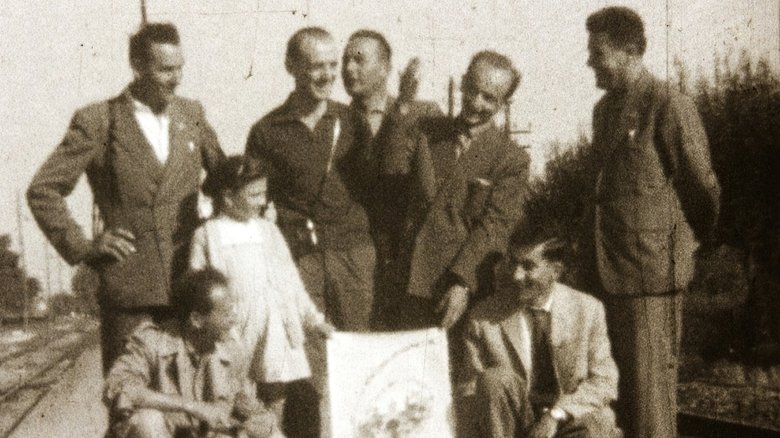
In the aftermath of Stalin’s death, three Italian communists engage in a trip to the Soviet Union to challenge their utopia with an 8mm camera. In 1957, Sauro, Luigi and Enzo all live in Alfonsine, a small town in Italy ruled like a miniature Soviet Union by the Italian Communist Party. As many communists in the West, they dream of the Soviet Union, and hope for the great Revolution. But with the wind of reform and self-criticism blowing through the Eastern Bloc after the death of Stalin the image of the Soviet Union as the workers’ paradise begins to crumble. They therefore decide to travel to the USSR to find out what is true and what is false in this supposed land of milk and honey. They film their entire journey with their 8mm camera. Through this invaluable personal archive, our film tells the hopes, disappointments and challenges of three young men faced with the reality of what seemed to be a utopia come true.
In suburban Buenos Aires, thirty unemployed ceramics workers walk into their idle factory, roll out sleeping mats and refuse to leave. All they want is to re-start the silent machines. But this simple act - the take - has the power to turn the globalization debate on its head. Armed only with slingshots and an abiding faith in shop-floor democracy, the workers face off against the bosses, bankers and a whole system that sees their beloved factories as nothing more than scrap metal for sale.
The newsreel series Jornal Português (1938-1951) was produced for the Secretariat of National Propaganda (SPN/SNI) by the "Portuguese Newsreel Society" (SPAC), under the technical supervision of António Lopes Ribeiro. It was conceived and employed as part of the propaganda machinery of Salazar's regime. Screened in cinema theatres prior to the main feature film, each issue of Jornal had approximately ten minutes in length and covered a variety of official government acts, national political news, major sports events and other assorted social and cultural affairs. Jornal Português is not only an indispensable document for the history of Estado Novo's propaganda, but also an unparalleled audiovisual archive of 1940s Portugal.
Wars of the future will be fought over water as they are over oil today, as the source of human survival enters the global marketplace and political arena. Corporate giants, private investors, and corrupt governments vie for control of our dwindling supply, prompting protests, lawsuits, and revolutions from citizens fighting for the right to survive.
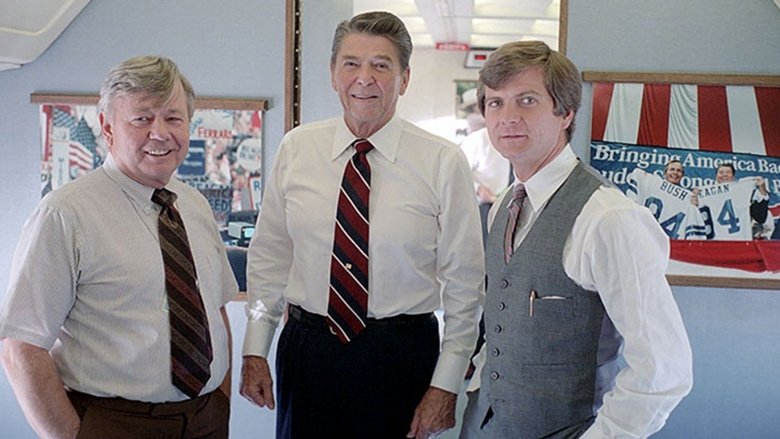
Boogie Man is a comprehensive look at political strategist, racist, and former Republican National Convention Committee chairman, Lee Atwater, who reinvigorated the Republican Party’s Southern Strategy to increase political support among white voters in the South by appealing to racism against African Americans. He mentored Karl Rove and George W. Bush and played a key role in the elections of Reagan and George H.W. Bush.
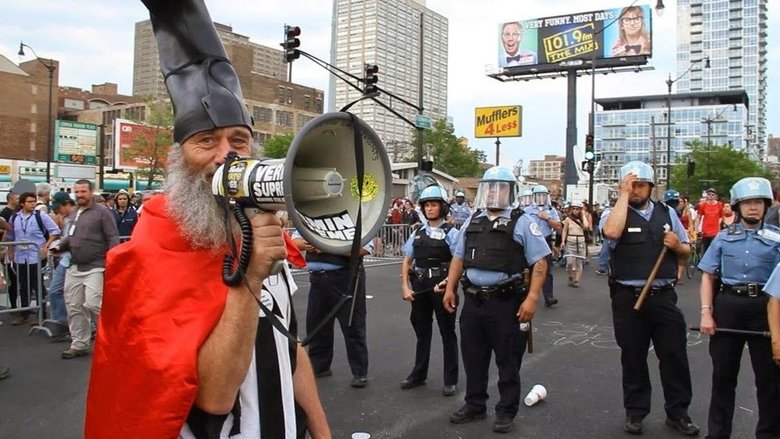
Vermin Supreme is no ordinary presidential candidate. Promising a free pony for every American, a fully funded time travel research program, and unprecedented zombie preparedness initiatives for a new American Republic, he truly is the people's candidate and the friendly fascist par excellence. "Who Is Vermin Supreme? An Outsider Odyssey" follows Vermin Supreme's raucous 2012 campaign from the Rainbow Gathering in the the Cherokee National Forest to the Democratic and Republican National Conventions to Occupy Wall Street protests, and all the way to heart of the American Empire in Washington, DC. From the unsettling gravitas of marauding riot police to the unbridled joy of songs sung for police officers and pranks played on anti-abortion fanatics, "Who Is Vermin Supreme?" is certain to show you America as you've never seen it before.
Produced by multiple EMMY® Award-winning executive producers Tom Hanks and Gary Goetzman (HBO’s John Adams and The Pacific), and EMMY® Award-winning producer Mark Herzog (History’s Gettysburg) of Herzog & Company (HCO), on Thursday, Nov. 14, CNN will premiere The Assassination of President Kennedy at 9:00pm ET and PT. The two-hour film explores the events on the day that changed the nation – and the world, as well as how the public’s perceptions of what happened that day have changed through the years.

A sharp, humorous examination of Almedalen Week in the Gotland province of Sweden, an annual event where thousands of politicians, lobbyists, and citizens gather for the ultimate showcase of political theater.
A documentary look at striking workers in a textile plant in Besançon, France, centering on interviews with workers about their motivations for becoming involved with the union and the struggles of their day to day life.
Documentary where rich social history frames a spirited debate on the development of water infrastructure throughout the USA.
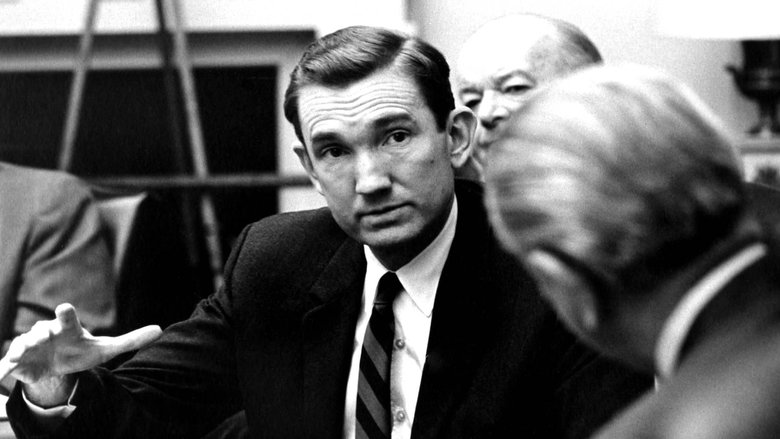
For fifty years, former U.S. Attorney General Ramsey Clark has challenged the abuses of U.S. power and championed the causes of human rights.